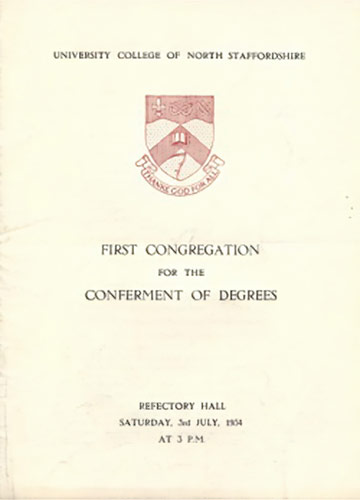A reunion of
Keele Pioneers
Part of Keele's 75th anniversary celebrations
Tuesday 30 April 2024, Keele Hall
We class our graduates of 1954-1961 as our ‘Pioneers’ have played a pivotal role in shaping the legacy of our institution. Keele University was born from an innovating vision, one of a different kind of university. Established in 1949 by Lord Lindsay, the University’s founding aim was to produce graduates who not only had the technical and specialist knowledge to move society forward, but who understood the social and political landscape that drove this need.
The graduates who chose to study here in the early years were truly pioneering of spirit and helped create a campus we are still very proud of today as we strive to continue building an institution that epitomises the Keele ethos of 'education for all'.
The reunion promises to be a nostalgic celebration of the remarkable journeys and accomplishments of our alumni and our institution, bringing together alumni from graduating classes 1954-1961.
Invitations have been sent to all those Pioneers for whom we hold contact details. If you have any questions about this event, please contact the alumni office alumni.hq@keele.ac.uk or +44(0)1782 732978.

Who are the Founding Graduates?
One hundred and fifty-seven students attended the University College of North Staffordshire in October 1950 and the first 150 graduated in 1954. Anyone who was part of that first founding Class is termed a Founding Graduate.
Right: Front Cover of the first Graduation Ceremony programme 3rd July 1954 - this particular copy was donated to the Keele Oral History Project by Bill Lighton (Class of 1954)
Who are the Pioneers?
The term “Pioneer” refers to the Classes of 1954 to 1961 who attended the University College of North Staffordshire. They and the Founding Graduates founded the Students' Union, the Athletic Union and the Keele Society, and created the heritage and traditions that have exemplified the Keele spirit for all later generations.


